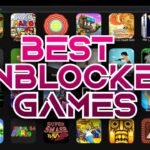In the ever-evolving landscape of healthcare, professionals face numerous challenges ranging from providing quality patient care to managing personal finances. Despite being essential pillars of society, healthcare workers often encounter financial strains due to factors such as student loan debt, low salaries, and unexpected expenses.
In this critical analysis, we delve into the role of loans in healthcare workers, exploring their benefits, drawbacks, and implications for both individuals and the healthcare industry as a whole.
1. Understanding the Financial Challenges Faced by Healthcare Professionals
Before delving into the role of loans, it’s essential to understand the financial challenges commonly faced by healthcare professionals. Despite their crucial role in society, many healthcare workers struggle with burdensome student loan debt accumulated during their education and training. Additionally, low salaries, particularly for entry-level positions, can make it challenging to cover living expenses and save for the future. Moreover, the demanding nature of healthcare professions often leaves little time for side jobs or additional income streams. As a result, healthcare professionals may turn to loans as a means of bridging financial gaps and managing expenses.
2. Addressing Student Loan Debt
One of the most significant financial challenges for healthcare professionals is student loan debt. Medical school, nursing programs, and other healthcare-related education paths often come with hefty price tags, leaving graduates with substantial debt burdens. While pursuing higher education is essential for advancing in the healthcare field, the burden of student loans can be overwhelming, especially for those entering lower-paying specialties or working in underserved areas. Loans, such as federal student loans or private student loans, play a crucial role in financing education for healthcare professionals, but they also contribute to long-term financial obligations.
3. Accessing Funds for Continuing Education and Training
Continuing education and professional development are vital for healthcare professionals to stay abreast of advancements in their field and maintain licensure or certification. However, pursuing additional training or certifications often comes with financial costs, including tuition, exam fees, and study materials. Loans can provide healthcare professionals with the funds needed to invest in their ongoing education and training, enabling them to enhance their skills and qualifications. By accessing loans for continuing education, healthcare professionals can expand their career opportunities and stay competitive in the ever-changing healthcare industry.
4. Covering Living Expenses During Residency or Training
Many healthcare professionals, particularly physicians, undergo extensive residency or fellowship training following their formal education. During this period, residents often face low salaries relative to their level of education and training, making it challenging to cover living expenses. Loans, such as medical residency loans or personal loans, can help residents bridge financial gaps and cover essential expenses such as rent, utilities, and groceries. While loans provide temporary relief during residency, they also add to the overall debt burden that healthcare professionals must manage throughout their careers.
5. Financing Practice Acquisitions or Startups
For healthcare professionals looking to establish their own practices or clinics, securing financing is essential. Whether acquiring an existing practice or starting from scratch, healthcare professionals may need loans to cover expenses such as facility costs, equipment purchases, and staffing. Loans tailored to healthcare professionals, such as medical practice loans or dental practice loans, offer specialized financing solutions designed to meet the unique needs of healthcare practices. While loans can facilitate practice ownership and entrepreneurship, they also entail financial risk and long-term repayment obligations.
6. Managing Unexpected Expenses
Healthcare professionals are not immune to unexpected expenses, whether it’s a medical emergency, home repairs, or unforeseen financial setbacks. In such situations, loans can provide healthcare professionals with access to quick funds to cover urgent expenses. Personal loans, lines of credit, or medical emergency loans offer flexible financing options that can help healthcare professionals navigate unexpected financial challenges. However, relying on loans to cover emergencies can lead to additional debt accumulation and financial strain if not managed prudently.
7. Balancing the Benefits and Drawbacks of Loans
While loans can provide much-needed financial support for healthcare professionals, it’s essential to balance the benefits with the drawbacks. On one hand, loans offer immediate access to funds to cover education, living expenses, practice acquisitions, and emergencies. They enable healthcare professionals to pursue their career goals, advance their education, and maintain financial stability during challenging times. On the other hand, loans come with repayment obligations, interest charges, and potential long-term consequences for credit and financial well-being. Moreover, excessive debt can limit career options, delay major life milestones such as homeownership or retirement, and contribute to stress and burnout.
8. Exploring Alternatives to Traditional Loans
In addition to traditional loans, healthcare professionals can explore alternative financing options to meet their financial needs. For example, income-driven repayment plans and loan forgiveness programs offer relief for those struggling with student loan debt. Healthcare employers may also offer benefits such as tuition reimbursement, sign-on bonuses, or loan repayment assistance as incentives for recruitment and retention. Additionally, financial planning tools and resources can help healthcare professionals manage their finances effectively, reduce debt, and plan for the future. By exploring alternatives to traditional loans, healthcare professionals can mitigate financial burdens and achieve greater financial security.
9. Promoting Financial Literacy and Wellness
Ultimately, the role of loans in supporting healthcare professionals underscores the importance of financial literacy and wellness. Educating healthcare professionals about managing debt, budgeting, saving, investing, and planning for the future is essential for fostering financial well-being. Financial literacy programs, workshops, and resources tailored to healthcare professionals can empower individuals to make informed financial decisions, reduce debt, and build wealth over time. By promoting financial literacy and wellness, healthcare organizations, educational institutions, and professional associations can support the financial health and resilience of healthcare professionals.
10. Conclusion: Striking a Balance
In conclusion, loans play a multifaceted role in supporting healthcare professionals throughout their careers. From financing education and training to covering living expenses, practice acquisitions, and emergencies, loans provide essential financial support to navigate the challenges of the healthcare industry. However, it’s crucial for healthcare professionals to strike a balance between leveraging loans to achieve their career and financial goals and managing debt responsibly to avoid long-term financial repercussions. By weighing the benefits and drawbacks of loans, exploring alternatives, and prioritizing financial literacy and wellness, healthcare professionals can navigate their financial journeys with confidence and resilience.










